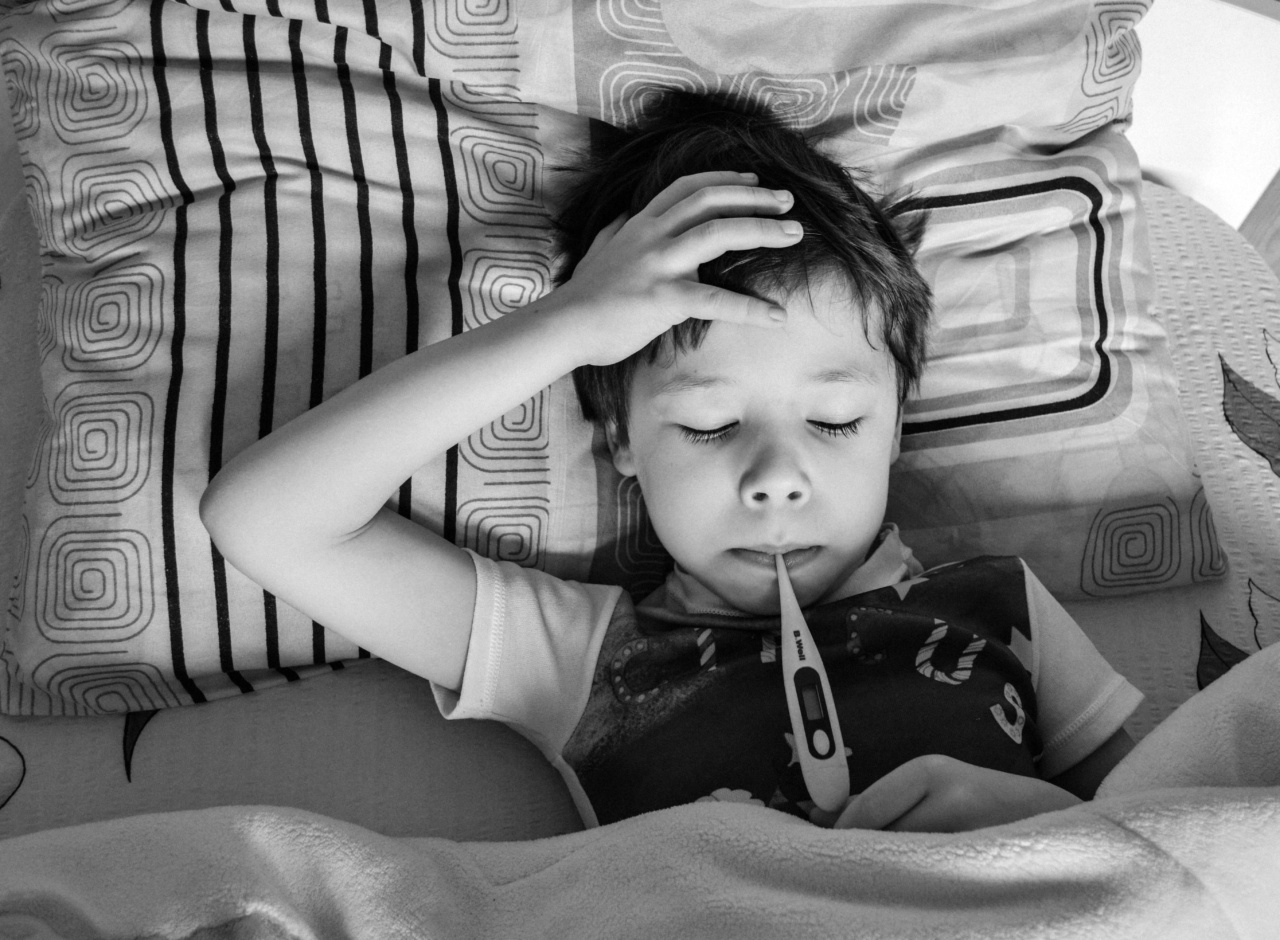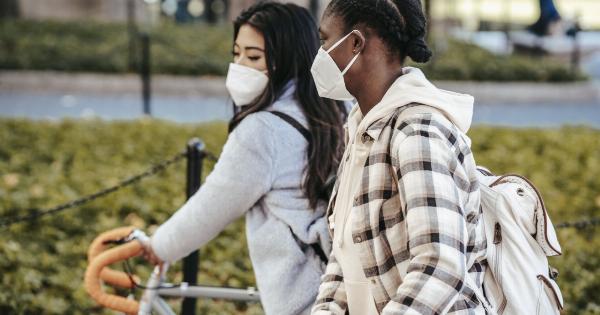Many of us have experienced the unpleasant symptoms of a cold or flu at some point in our lives. The runny nose, cough, sore throat, and body aches can leave us feeling miserable and seeking relief.
While we often attribute the onset of these viral infections to factors such as exposure to germs or a weakened immune system, recent research suggests that a lack of sleep may also play a role in increasing our chances of catching a cold or flu. In this article, we will explore the connection between sleep deprivation and susceptibility to viral infections, examining the scientific evidence and potential mechanisms at play.
The Link between Sleep and Immune Function
In order to understand how a lack of sleep may affect our ability to ward off illnesses like the common cold or flu, it is crucial to delve into the intricate relationship between sleep and immune function.
Sleep is a vital physiological process that allows our bodies to heal, repair, and optimize various bodily functions. One of these functions is our immune system, which acts as our body’s defense mechanism against harmful pathogens and foreign invaders.
When we sleep, our immune system releases markers called cytokines that help regulate immune responses and promote inflammation when needed.
Adequate sleep ensures a balanced production of these cytokines, allowing our body to mount an effective immune response against invaders. On the other hand, sleep deprivation can disrupt the delicate balance of these cytokines, leading to impaired immune function and increased vulnerability to infections.
Sleep Deprivation and the Risk of Catching a Cold
Several studies have examined the relationship between sleep duration and the risk of catching a cold. One notable study conducted by Cohen et al.
(2009) found that individuals sleeping less than seven hours per night were nearly three times more likely to develop a cold when exposed to the virus compared to those sleeping eight hours or more. Another study published in the journal Sleep revealed that participants who slept less than five hours per night were at a significantly higher risk of developing a cold compared to those sleeping seven hours or more.
These findings indicate that insufficient sleep duration is associated with an increased susceptibility to viral infections.
While the exact mechanisms underlying this connection are not yet fully understood, it is believed that sleep deprivation weakens the immune system’s ability to mount a robust defense against viruses, making individuals more vulnerable to infection upon exposure.
The Impact of Sleep Quality on Flu Risk
In addition to sleep duration, the quality of sleep also plays a significant role in our immune system’s ability to fight off viral infections. A study conducted by Prather et al.
(2015) examined the impact of sleep quality on flu vaccine effectiveness.
The researchers found that individuals who experienced poorer sleep quality had a reduced immune response to the flu vaccine, indicating that inadequate sleep can compromise the body’s ability to mount an effective defense against viral antigens.
Poor sleep quality is often characterized by fragmented sleep, frequent awakenings, and insufficient time spent in deep, restorative sleep stages.
These disruptions can impair the production and regulation of cytokines, compromising immune function and increasing susceptibility to viral infections like the flu.
The Role of Stress in Sleep and Immune Function
Stress is another factor that can impact both sleep quality and immune function. During periods of stress, our bodies release stress hormones such as cortisol, which can interfere with sleep patterns and reduce the overall quality of our sleep.
Chronic or prolonged stress can create a cycle of poor sleep and weakened immune function.
Furthermore, stress itself can suppress immune responses, making individuals more susceptible to infections.
The combination of stress-induced sleep disturbances and weakened immune function creates an environment in which viruses can more easily take hold and cause illness.
Explanations for the Sleep-Immune System Connection
While the precise mechanisms underlying the relationship between sleep deprivation and increased susceptibility to viral infections are still being elucidated, several hypotheses have been proposed.
One theory suggests that insufficient sleep leads to changes in the expression of genes involved in immune system regulation, potentially compromising immune response efficiency.
Another hypothesis relates to the impact of sleep deprivation on inflammation. Adequate sleep helps regulate inflammatory processes in the body, preventing excessive inflammation that can lead to tissue damage.
Sleep deprivation disrupts this balance, allowing for increased inflammation, which may facilitate the replication and spread of viruses.
Furthermore, sleep plays a critical role in the production and regulation of antibodies, which are essential for targeting and neutralizing pathogens.
Insufficient sleep duration and quality may hinder the body’s ability to produce sufficient antibodies, reducing its capacity to combat viral infections effectively.
How to Improve Sleep and Reduce Cold/Flu Risk
Given the evidence suggesting a link between insufficient sleep and increased vulnerability to viral infections like the common cold and flu, it is important to prioritize healthy sleep habits to reduce the risk.
Here are some tips to improve sleep quality and enhance immune function:.
- Establish a consistent sleep schedule, aiming for a sufficient duration of sleep each night.
- Create a relaxing bedtime routine to signal to your body that it is time to sleep.
- Avoid stimulating activities and electronic devices close to bedtime.
- Create a sleep-friendly environment by keeping your bedroom cool, dark, and quiet.
- Avoid consuming caffeine or heavy meals close to bedtime.
- Engage in regular physical activity, but avoid intense exercise close to bedtime.
- Manage stress through relaxation techniques such as meditation or deep breathing exercises.
- Avoid napping too close to bedtime, as it may interfere with nighttime sleep.
- Limit exposure to stimulating or stressful situations in the evening hours.
- Consider seeking professional help if you experience chronic sleep problems or suspect a sleep disorder.
Conclusion
In summary, the available scientific evidence suggests that a lack of sleep can indeed increase the chances of catching a cold or flu.
Sleep deprivation and poor sleep quality weaken our immune system’s ability to fight off viral infections effectively, making us more susceptible to illness. Factors such as disrupted production of cytokines, compromised antibody production, increased inflammation, and stress-induced immune suppression may contribute to this heightened vulnerability.
As sleep plays a crucial role in maintaining optimal immune function, it is essential to prioritize healthy sleep habits to reduce the risk of viral infections.
By adopting good sleep hygiene practices and managing stress effectively, we can enhance the quality and duration of our sleep, thereby bolstering our immune system’s defenses against cold and flu viruses.































